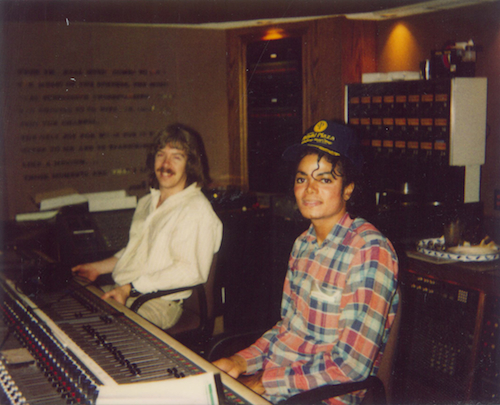
Mich würde eher neugierig machen, wie die erfolgreichen schwarzen künstler den ATV deal sahen ... ein schwarzer aus ihren reihen setzte sich da an die spitze, allen voraus - schwarz und weiss. Ich glaube, das brachte neider und anfeindungen von allen seiten - einschliesslich der bekannten verächtlichkeiten wegen MJs äusserem deutlichen imagewandel zwischen 'Thriller' und 'BAD' - der auch längst nicht von den schwarzen so nachvollzogen wurde, wie MJ vielleicht erwartet hatte.
Nochmal zum OT:
Wer weiss, wer damals mitbewerber beim ATV deal war? Oder war er tatsächlich der einzige bewerber?
Ich meine, zwischen MJs kaufangebot von 46 mio USD und 47,5 mio USD ist ja kein so³ himmelweiter unterschied ... für seine liga.
Mod's ich weiss nicht wirklich wohin mit derlei fragen, sry
 Tipp?
Tipp?






 :
:
 MJ in the studio circa 1987. Picture courtesy of ©Matt Forger. Used by permission.Michael Jackson began work on what would become the Bad album in 1985. Three years had lapsed since the release of Thriller, and fans were waiting anxiously for the sequel. Following the most successful record in the history of the music industry, however, was not an enviable task.
MJ in the studio circa 1987. Picture courtesy of ©Matt Forger. Used by permission.Michael Jackson began work on what would become the Bad album in 1985. Three years had lapsed since the release of Thriller, and fans were waiting anxiously for the sequel. Following the most successful record in the history of the music industry, however, was not an enviable task.

Kommentar